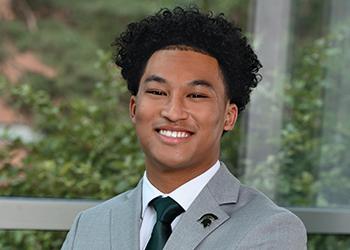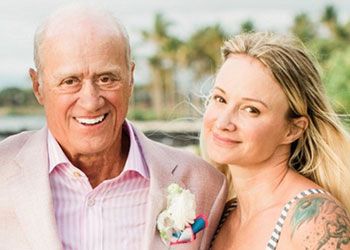Justice in action: From the classroom to the Supreme Court
Faculty attorney makes a difference nationwide through the Indian Law Clinic

Justice in action: From the classroom to the Supreme Court
Faculty attorney makes a difference nationwide through the Indian Law Clinic
November 15, 2024Behind every child welfare case is a life. Sometimes, it is the life of a child who deserves to connect with their cultural heritage. In the Haaland v. Brackeen Supreme Court case, the children were from the Navajo and Cherokee Nations as well as the White Earth Nation and the Ysleta del Sur Pueblo. And when the case was won, all Native children were protected, as was the 1978 Indian Child Welfare Act (ICWA), which prevents the removal of Native children from their families and tribes.
For six years, Director of the Indian Law Clinic Kathryn (Kate) Fort worked on this key Supreme Court case along with Tribal Nations, who believe raising children is a tribal responsibility. And finally, in 2023, they celebrated a successful conclusion, which meant the traditions of Tribal Nations would be honored. As Kate says:
Children need to know their culture, religion, language and their people. Being in foster care is traumatizing. Something happened in their past to require foster care, so being connected to their family and tribe in some way can provide resiliency.
Resiliency is a requirement for appellate attorneys themselves, as they often argue complex cases against the odds. For some, like Kate Fort, the complexities only fuel their passion to right injustice.
Kate is the first lawyer in her family. After being recruited by MSU and getting a full ride as a Dean King Scholar in 2002, Kate completed her law degree and found her calling in federal Indian law.
Michigan is an important state for her practice, as it is the home of 12 federally recognized tribes. Kate finds working with the tribes to be lovely; they have been welcoming and generous and have trusted her with their children in the courts. “I don’t take that lightly,” she says.
Each child welfare case that the MSU Indian Law Clinic handles for one of the 574 federally recognized Native American tribes in the U.S. presents opportunities for justice for everyone involved.
No day is typical as Kate fulfills her role as the director of the MSU Law Clinic, runs the Indian Law Clinic, teaches multiple classes and serves as one of the nation’s leading experts on the ICWA — there is much work to do. When Kate isn’t working with students or advising attorneys and parents on cases across the country, she is busy writing articles and editing the second edition of her case book.
The Indian Law Clinic, which serves clients nationwide, recently received a $400,000 grant from the NoVo Foundation, in addition to support from the Henry Luce Foundation. These prestigious foundations are dedicated to fostering a more equitable and just world, and their support emphasizes the important work happening at the MSU clinic.
Funding helps hire additional lawyers, increase administrative support and increase the clinic’s capacity. But resources are always needed. “The area of tribal child welfare tends to be underserved and there’s very little funding for this,” says Kate. “You don’t make money on child welfare. All of our clinics are pro bono.”
The costs of legal work are high, with court fees, travel for out-of-state oral arguments, filing fees and clinic infrastructure costs. Kate is determined to preserve what MSU has accomplished through the law clinics and help them grow with more staff and possibly an endowed position. “That would be the dream — we’d get so much done,” she says.
Michigan State University occupies the ancestral, traditional and contemporary lands of the Anishinaabeg—Three Fires Confederacy of Ojibwe, Odawa and Potawatomi peoples. “There is a responsibility of MSU as a land grant institution to provide services to our tribes,” says Kate.
Through her teaching, Kate hopes to pass the torch to the next generation. Until then, she will continue fighting for justice alongside Tribal Nations. “I do this work at the direction and inspiration of Native people, particularly Native women and tribal leaders who have been doing this work forever.”
LEARN MORE about support for the Indian Law Clinic by contacting MSU College of Law Senior Director of Development Jacqueline Kontry at jkontry@msu.eduor by calling (517) 432-6845.




